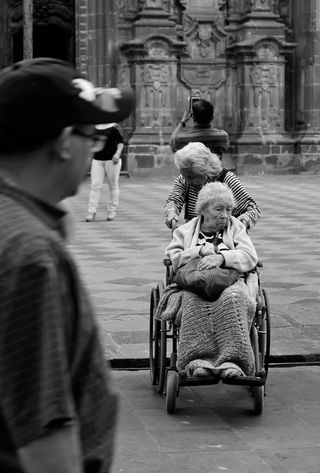Empathy
What Coronavirus Teaches Us About Racism: A Dose of Empathy
Part 2: Not all deadly diseases are treated the same.
Posted February 3, 2020 Reviewed by Chloe Williams

Another deadly disease to consider is AIDS, which became an epidemic in the 1980s that disproportionately afflicted and took the lives of gay men, many of whom were shunned by the public and their loved ones. Thanks to films like Philadelphia, which humanized those living with HIV and AIDS, research, activism and awareness campaigns—including heterosexual basketball superstar Magic Johnson’s public admission that he had also contracted HIV (which proved that it was not just a gay man’s disease), media and public attitudes has shifted over the last 30 years. This is not to say that the AIDS stigma is gone, but it has ameliorated.
Healthline writer Josh Robbins credits advances in medicine and treatment for this shift in perception:
“Of the more than 35 million people who have died in the AIDS epidemic, I don’t know one… I think that makes my experience of stigma somewhat different from those who lived through the early years of the epidemic—who lost loved ones and who witnessed the fear of death that existed during that time."
The numbers back his theory. According to the World Health Organization, people dying from HIV-related illnesses fell by 58 percent between 2004 and 2018, thanks to effective and accessible drugs. And, Magic Johnson continues to thrive, more than 25 years after his diagnosis.
Still, it probably makes most sense to compare coronavirus to the common cold or flu (influenza). Both share similar symptoms and are spread the same way—via sneezing and coughing. And, neither have cures.
The flu, however, kills up to 650,000 people every year across the globe. In the U.S., the CDC estimates there have been up to 45 million flu-related illnesses and 61,000 deaths annually since 2010. It’s worth calling out that for both the flu and coronavirus, the fatality rate is higher in older adults, particularly those who have chronic health conditions.
Certainly, these are scary statistics—but, like cancer and AIDS, we already know the flu affects all genders, ethnicities, and sexual orientations, so those who are sick (or are assumed to be sick), generally aren’t harassed, stigmatized, or ostracized. Instead, they may get told to go home, rest up, and have some chicken soup. In other words, like the aforementioned deadly diseases, they get empathy.
Missing a Dose of Empathy
So why is it that empathy is missing from the coronavirus conversation?
The problem, maybe, is that for many people, empathy is difficult to elicit—even when it doesn’t cost anything or isn’t emotionally draining, according to a 2019 study published in the Journal of Experimental Psychology. In the study, 1,200 individuals participated in trials in which they were asked to describe images, feel empathy for others depicted in the images, and choose between images of sad or smiling people. Participants usually gravitated toward the images that didn’t require feeling empathy, even when people were smiling in them. On average, participants chose the empathy images just 35 percent of the time.
When surveyed afterwards, participants explained that they found being empathetic was more “cognitively challenging—requiring more effort and that they felt less good at it…” which “made them feel insecure, irritated or distressed.”

Researchers also conducted additional experiments in which participants were told they were more or less empathetic than others, based on how they chose their images. The group that was told they were more empathetic were more likely to choose empathy images and reported saying it “required less mental effort.” The results were promising, as it suggests people can be taught to be more empathetic through encouragement and positive reinforcement.
These days, though, opportunities for this kind of encouragement seem to be in short supply, especially in the U.S., where empathy has been usurped by tribal and divisive politics. Racist sentiments and hate crimes have spiked dramatically since President Trump took office. A 2019 Pew Research study finds the majority of African Americans (76 percent), Hispanics (58 percent), and Asians (76 percent) have all experienced discrimination or been treated unfairly because of their ethnicity. The majority of whites (67 percent), meanwhile say they have never experienced this kind of discrimination.
As you might imagine, when people are divided, empathy is even harder to come by. In fact, a 2020 research study from the University of Massachusetts Amherst found significant evidence that “when members of historically advantaged groups engage in contact with disadvantaged groups, they were more likely to support social change to promote equality.” In most circumstances, whites fall into the former category, whereas people of color are in the latter. (Interestingly, the opposite is true for historically disadvantaged groups.)
Moreover, researchers found that among both groups, “contact predicted greater willingness to work in solidarity to achieve greater social equality.” This suggests the converse to also be true—if we don’t interact with others, we won’t achieve greater social equality. And, by shouting racist comments, avoiding those who don’t look like us, or barring them from our establishments, aren’t we just perpetuating this divide?
Yes, outbreaks are scary and we should all do our best to be cautious and take common-sense steps to avoid the coronavirus. According to the CDC, the best prevention is to:
- Wash your hands often with soap and water for at least 20 seconds. Use an alcohol-based hand sanitizer that contains at least 60 percent alcohol if soap and water are not available.
- Avoid touching your eyes, nose, and mouth with unwashed hands.
- Avoid close contact with people who are sick.
- Stay home when you are sick.
- Cover your cough or sneeze with a tissue, then throw the tissue in the trash.
- Clean and disinfect frequently touched objects and surfaces.
Nowhere does it recommend that you harass or hurl insults at people of Asian descent, who are just as likely (or unlikely) to be afflicted by the coronavirus as you are.




